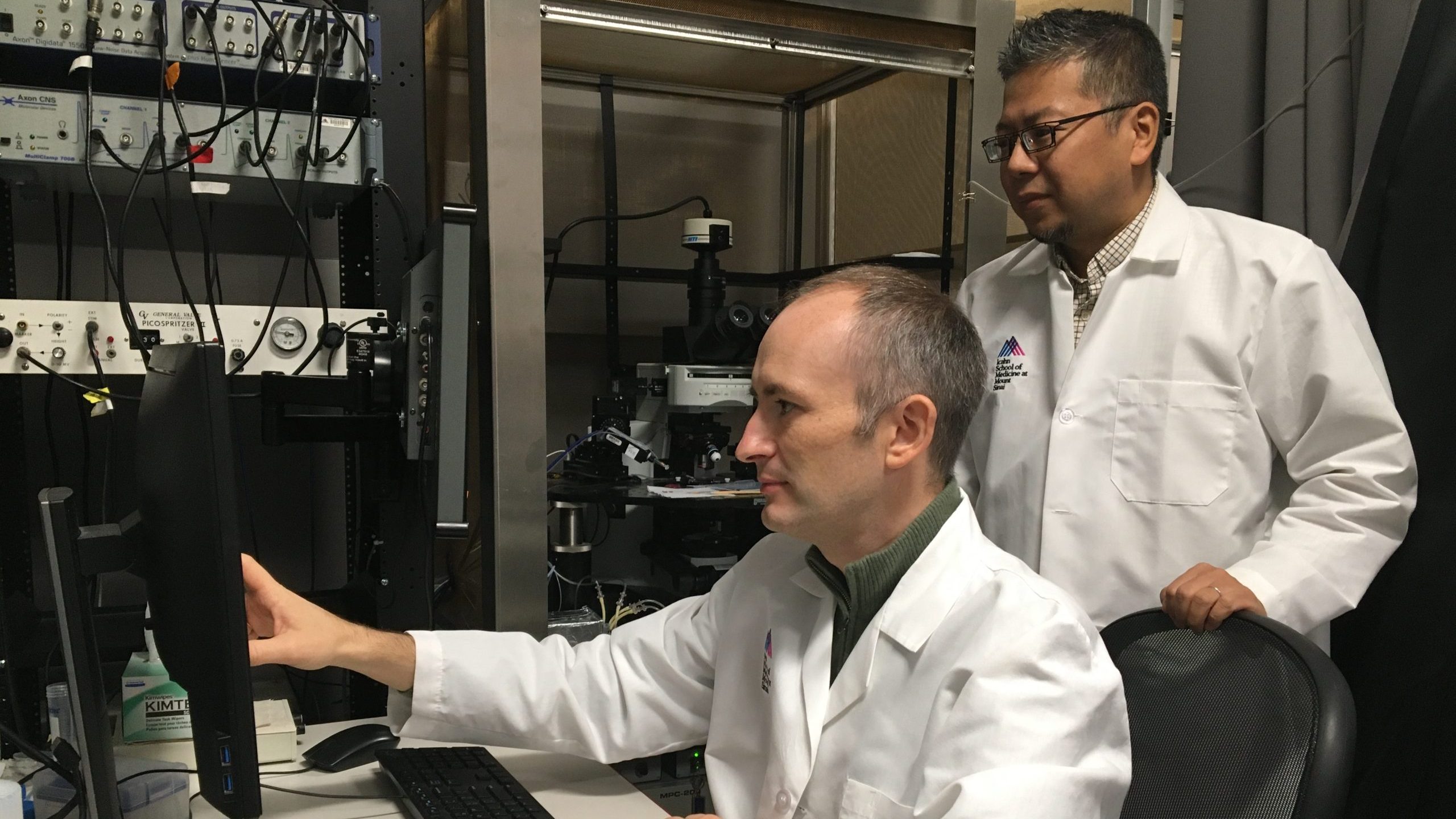Pharmacological Modulation of Nicotinic Signaling to Ameliorate Cognitive Deficits in a Fragile X Mouse Model

Principal Investigator
FRAXA Fellow
New York, NY
Summary
Nicotine -- familiar to any smoker -- tickles nicotinic acetylcholine receptors in the brain. These receptors are key to important brain functions including learning and memory. This team will explore whether drugs that dampen these receptors can improve cognitive function in Fragile X.
The Science
by Hirofumi Morishita, MD, PhD
Fragile X syndrome (FXS) results from the loss of function of the FMR protein. FXS causes a wide range of developmental problems but cognitive deficits represent one of the hardest challenges for treatment. The goal of our research is to identify specific compounds and developmental time windows to effectively modulate circuit maturation dysregulated to prevent cognitive behavior deficits in mouse models of FXS.
A recent series of studies from our laboratory revealed that frontal-sensory projection neurons undergo developmental changes, specifically reduction of nicotinic tone, that is essential for adult attention. This developmental shift is disturbed in a mouse model of FXS.
This project will build on those circuit-based developmental findings. We will establish a preclinical proof-of-principle of pharmacological intervention by identifying specific neuronal nicotinic acetylcholine receptor (nAChR) antagonists and the timeframe most effective in producing sustained attention rescue following development. We will test the hypothesis that early adolescent suppression of nAChR signaling rescues frontal-sensory circuit and attentional behavior deficits in Fragile X mice.
To test this hypothesis, we will first examine if specific nAChR antagonist treatment during adolescence can rescue adult attentional behavior deficit in mouse model of FXS. Second, we will test the effect of nAChR antagonists on cortical circuit, responsible for attentional deficit in FXS. Finally, we will test the effect of pharmacological intervention during adolescence can rescue adult EEG activity in prefrontal cortex.
If successful, the proposed study will establish a preclinical proof-of-principle of pharmacological prevention of circuit dysregulation to ameliorate cognitive deficits, a set stage for human translation.

